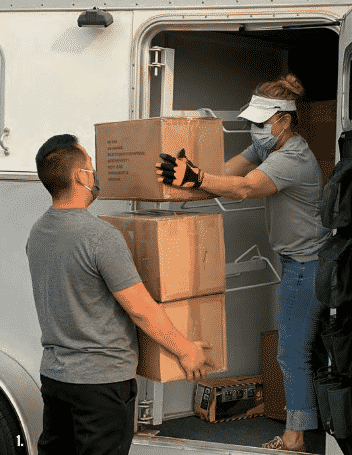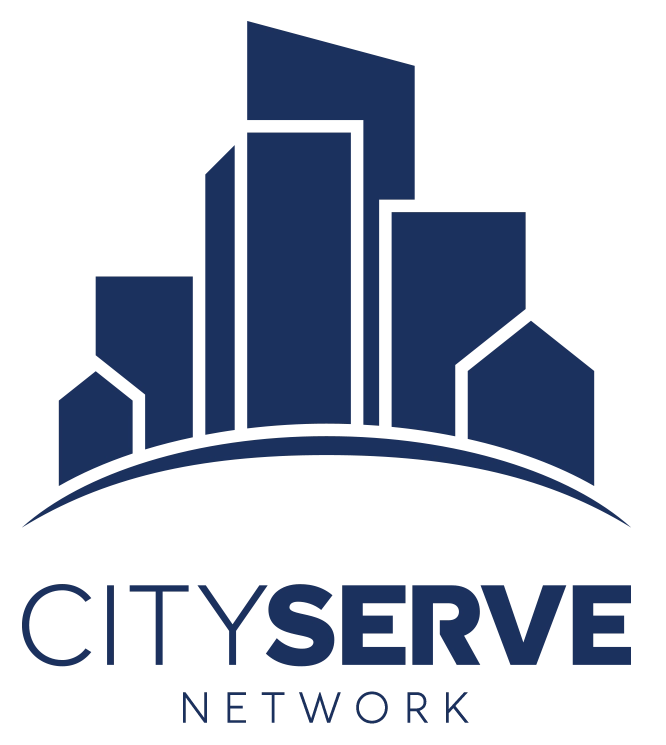Spreading Hope By Meeting Needs
A California Church Models Compassion in Action
This article first appeared in Influence Magazine.
 When Jason LeFaive and his team planted Seven Oaks Church (AG) three years ago in Visalia, California, they were intentional about getting everyone involved in volunteering.
When Jason LeFaive and his team planted Seven Oaks Church (AG) three years ago in Visalia, California, they were intentional about getting everyone involved in volunteering.
“Compassion has been a focus from the beginning,” says LeFaive, the church’s lead pastor. “Part of our DNA is to be invested in serving. We’ve always had a desire for every person in our church to serve in some capacity, whether on a Sunday morning or within the community.”
Early on, the church partnered with CityServe, a ministry initiative started in collaboration with the Assemblies of God SoCal Network.. CityServe brings together local churches, nonprofits, businesses, and government agencies to meet needs. An impressive 60% of Seven Oaks congregants have completed CityServe training.
 “We have a constant conversation, where we talk about everyone being a missionary and having a purpose to serve,” LeFaive says. “We emphasize how the church should be invested in our community, and how we should be a part of the change and extend the gospel into our neighborhoods, families and vocations.”
“We have a constant conversation, where we talk about everyone being a missionary and having a purpose to serve,” LeFaive says. “We emphasize how the church should be invested in our community, and how we should be a part of the change and extend the gospel into our neighborhoods, families and vocations.”
When the pandemic hit, having a volunteer culture and community partnerships already in place made it easier to mobilize the congregation to minister to hurting people.
Visalia is located in Tulare County, which boasts a large agricultural economy and two national parks. The racially and ethnically diverse population includes large numbers of low-income service workers and migrant farm laborers. The region has high rates of food insecurity, as well as substance abuse and homelessness — problems the pandemic has exacerbated.
“The need definitely increased with the pandemic, with everything from lost jobs to health situations contributing to people’s suffering,” LeFaive says. “But God is using the church to bring hope. We’ve been busier than ever over the last year as we’ve focused on serving the community around us.”
Seven Oaks reflects the diversity of its community. Hispanic and Black attendees make up 50% and 10% of the congregation, respectively. With a weekly attendance of around 200, the church is not large. Yet it is making a big difference in the lives of many. One of the keys has been building relationships and teaming up with others who are investing in the community, LeFaive says.
 The church works with local schools; a pregnancy care center; an agency that assists teen parents; an addiction recovery program; and a police organization serving at-risk kids.
The church works with local schools; a pregnancy care center; an agency that assists teen parents; an addiction recovery program; and a police organization serving at-risk kids.
Seven Oaks is a distribution center for Farmers to Families, a program the U.S. Department of Agriculture started during the pandemic to prevent food waste. The congregation works with 41 other churches to distribute boxes of agricultural goods that include dairy products, cooked meat, and fresh produce. Since May 2020, they have helped get more than 107,500 food boxes into the hands of hungry people in Tulare County and neighboring Kings County.
Having grown up in a low-income, unchurched home, LeFaive recognizes the Kingdom potential of compassion ministry.
“As a kid, I never saw the Church come to our door or ask if we had a need,” LeFaive says. “I believe it would have made a difference in our family if someone had done that. Now I get to be a part of the body of Christ, extend the gospel to others, and help reframe what it means to be the Church. For me, it is humbling.”
LeFaive says a number of people have started attending Seven Oaks after receiving assistance — and many of them are already giving back through CityServe and other volunteer opportunities.
“It’s a beautiful representation of the gospel to see them discover their purpose,” LeFaive says. “God has done something amazing in them, and now they want to pass it on and be a blessing to someone else.”
One couple with physical challenges and young children received furniture, hygiene products, and food through the church’s outreach. That built a relational bridge, and they eventually started attending services.
 “It’s great to drop stuff off, but what does it look like to have conversations with the people you’re helping?” LeFaive says.
“It’s great to drop stuff off, but what does it look like to have conversations with the people you’re helping?” LeFaive says.
That’s where opportunities often arise to address deeper issues. For example, while interacting with a mother who needed help with rent, church leaders discovered the woman had recently suffered the loss of a child and was struggling with depression. They were able to come alongside her, minister to her emotional needs, and share the hope of Christ.
“We can give handouts, but the reality is, it’s the gospel that changes lives,” LeFaive says.
Seven Oaks is a designated distribution center and supply chain, or HUB, for CityServe. A local company donated 10,000 square feet of warehouse space, which includes cold storage and an area for large items, such as donated furniture. CityServe receives excess or discontinued merchandise from a number national retailers.
“Instead of companies throwing away products and having them end up in landfills, we’re giving them away through our local churches,” says Karl Hargestam, executive director for CityServe. “But this is more than just giving away stuff. We’ve been able to be the Church and be unashamed about that.”
For LeFaive, it’s about raising up a priesthood of believers (1 Peter 2:9–10) and fulfilling Christ’s call to be His witnesses in their Jerusalem and beyond (Acts 1:8).
“If you look at the mandate to share who Jesus is, it makes sense that it would involve serving the community around us,” LeFaive says. “This is a part of what we should be doing — having a heart of compassion that aligns with Scripture.”
Hargestam says compassion ministry does not take away from the proclamation of the gospel; rather, it opens doors for it.
“Living out our faith every day earns us credibility to preach the truth,” he says. “God’s answer to a broken world is the local church, its people, and their faith.”
